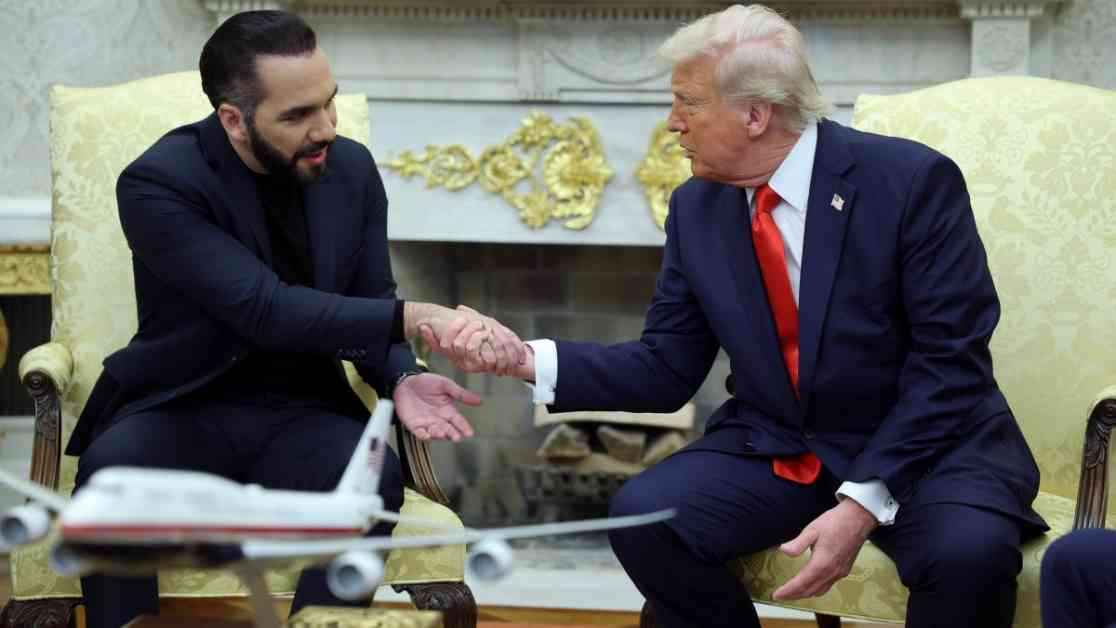Kilmar Armando Abrego Garcia, a Beltsville, Maryland, father, finds himself at the center of a controversial and unprecedented situation. ICE admits Garcia was wrongfully deported to El Salvador, sparking a heated exchange between El Salvador President Nayib Bukele and President Donald Trump. The Justice Department acknowledges that Garcia should not have been deported, but Bukele is adamant about not facilitating his return, leading to a complex legal and diplomatic quandary.
Unveiling the Oval Office Drama
During a meeting in the Oval Office, President Bukele expressed his reluctance to return Garcia to the United States, questioning how he could accomplish such a task. His stance of not releasing Garcia in his own country and Trump’s subsequent comments about welcoming criminals have escalated tension. Despite Garcia never facing criminal charges in either the U.S. or El Salvador, the Justice Department recognizes the error in deporting him. However, the issue remains unresolved, with a clash of opinions and a lack of concrete resolutions.
Secretary of State Marco Rubio and Attorney General Pam Bondi added their voices to the discussion, emphasizing the complexity and legal implications of the situation. Trump’s adviser Stephen Miller contradicts the Justice Department’s stance, maintaining that Garcia was appropriately sent to El Salvador. The conflicting accounts and shifting narratives surrounding Garcia’s deportation underscore the intricacies of international relations, legal procedures, and political posturing.
Challenges of Gang Affiliation and Legal Rulings
The Trump administration’s efforts to combat gang violence and terrorism complicate Garcia’s case, as he is linked to MS-13, a notorious street gang. However, a federal judge’s assessment reveals the flimsiness of the evidence against Garcia, highlighting the dangers of unsubstantiated allegations and flawed legal processes. Despite the Supreme Court’s directive to facilitate Garcia’s return, bureaucratic hurdles and conflicting interpretations of court orders create a legal quagmire.
The Supreme Court’s ruling to bring Garcia back to the U.S. underscores the urgency and complexity of the situation. The government’s failure to comply with court orders and the lack of transparency in sharing information further muddle the resolution process. Garcia’s current confinement in El Salvador raises questions about his well-being and legal status, adding layers of uncertainty to an already convoluted saga.
The evolving narrative surrounding Kilmar Abrego Garcia’s deportation imbues the story with suspense, legal intrigue, and political drama. As legal battles unfold and diplomatic tensions rise, the fate of Garcia hangs in the balance, subject to the whims of political leaders, legal authorities, and public opinion. The complex interplay of legal, political, and human elements in this case underscores the intricacies of the justice system and the challenges of navigating international relations in an increasingly interconnected world. The story of Garcia’s deportation serves as a poignant reminder of the human impact of bureaucratic errors, legal missteps, and political posturing on individuals and families caught in the crossfire.














